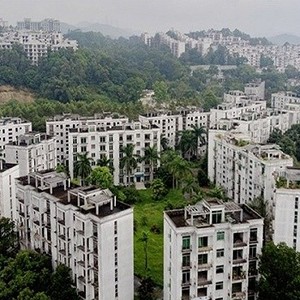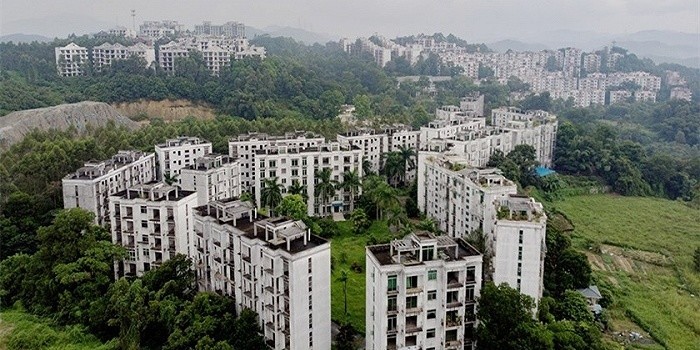By ZHAI Xingli
HE Yongnian, 72, trudges miserably up a small hill to the spring in the middle of his compound, plastic container in each hand. There is no water in his, nor any other apartment, in the once aspirational neighborhood.
The former diving coach and his wife LUO An’an came to Guangzhou for its mild climate more than twenty years ago whereupon a flyer for Aozhou Village — “nature on your doorstep” — caught their attention. With its artists’ impressions of swimming pools, cinemas and shopping centers, it looked like the Promised Land, the perfect place to retire after a lifetime shuffling from city to city. Without much hesitation and expecting to take possession in early 1999, the couple paid the deposit on an 89-square-meter unit and have never missed a mortgage payment since.
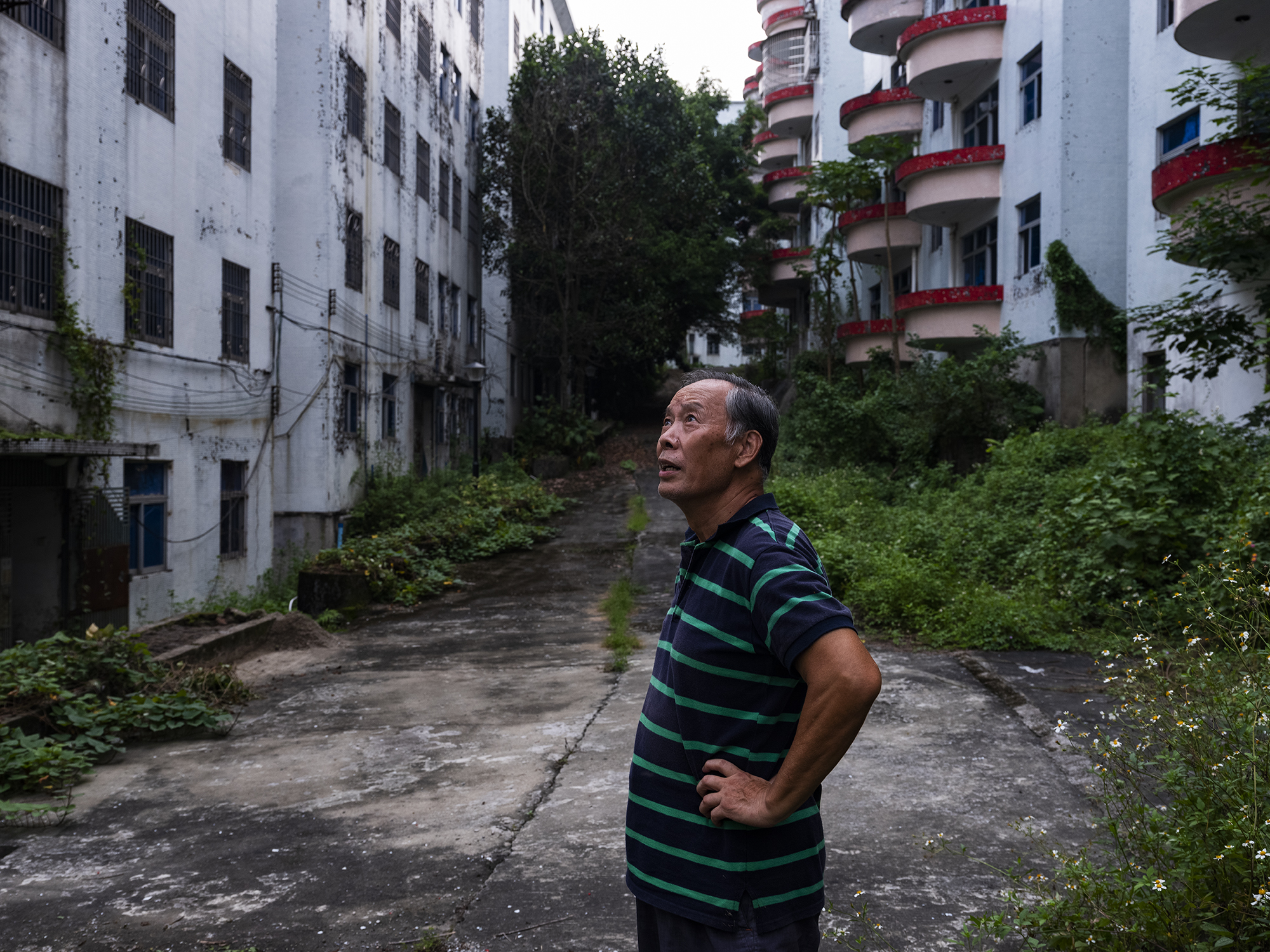
One of the village’s first arrivals, LIU Yongguang, 74, bought his dream house in 1996 and shortly afterward purchased a neighboring unit for his aging mother. Liu was quite alone in the village, a barely habitable construction site at that time, very few buyers ever showed up to close on their houses. No more than a handful of units in his building have ever been occupied.
From the promised land to a wasteland
After ten years of prevarication, delays and outright lies, He and Luo’s building remained a desolate shell, open to the elements. Grudgingly, Guangzhou Aomei Real Estate Development agreed to switch the couple to a comparable unit in a finished building, a unit which, for better or worse, the elderly couple did not own.
Since his mother passed away and Liu retired, he has devoted almost all his time to a running legal battle with Aomei.
The 400-hectare project was first approved in 1992 and construction started in 1995. Phase 1 went on sale the next year. Phase 2, never quite materialized. Aomei only ever completed a tiny fraction of the promised buildings but spared little effort in erecting bureaucratic hurdles and devoted much energy to slick self-justification. Eventually, the entire project was suspended indefinitely due to “capital shortage.”
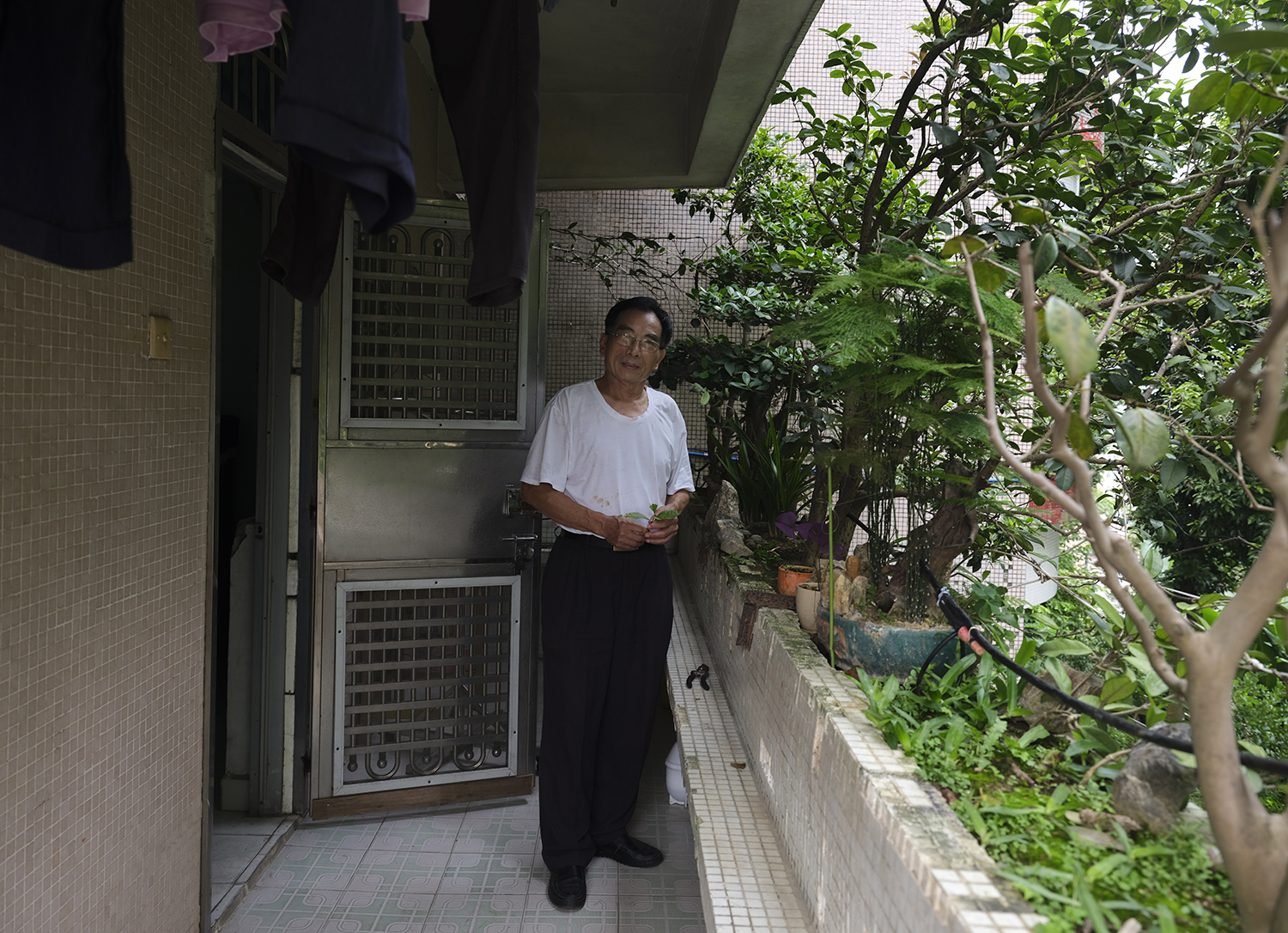
According to Aomei, the company treasurer absconded with hundreds of million yuan, but after sifting through a slagheap of documents, Liu suspected the truth to be far more complicated and sinister than that.
“Phase 1 didn’t make enough money to pay back the loans taken out to build it, so they went on to sell Phases 2, Phase 3 and any other number of phases to fill the gap,” Liu said. “After selling all the way down to the last phase, the financing gap became a yawning abyss with no money to fill it.”
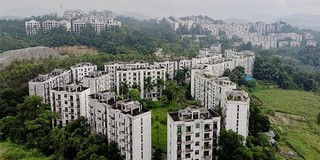
Not long before the treasurer bailed with the loot – if indeed he ever did – construction ground to a temporary halt. At the same time Aomei’s sales efforts went into overdrive for buildings that did not exist, and only ever would in the fantasies of the company’s directors. Six months after the sales’ push quietened down, construction appeared to resume.
LAO Yuezhou, a finance broker who also bought a unit in Aozhou Village, also senses something abnormal.
With the waters already murky, stirring them up did not provide much clarity. To attract buyers, Aozhou Village had touted a principal-only mortgage arrangement. Buyers only needed to pay back the principal, while Aomei nobly picked up the tab for the interest. Lao calculated that interest amounted to at least 60 percent of Aomei’s original loan.
When it all became too much for Aomei in 2000, Lao suspects they simply stopped paying interest, leaving the banks free to set their legal dogs on some 300 homeowners. “Given all these unorthodox arrangements, something had to give,” Lao said. “It was only a matter of time.”
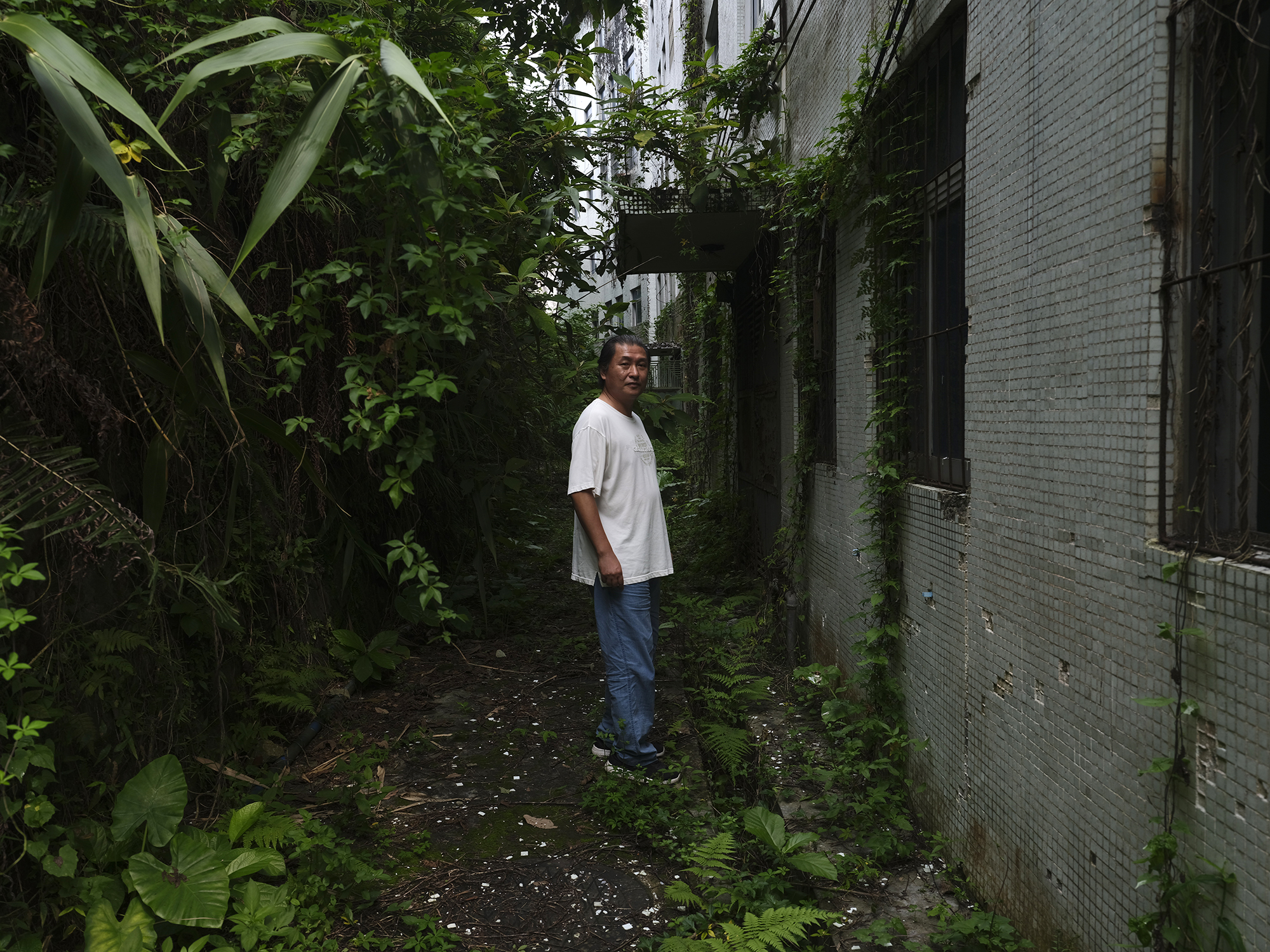
Broken promises, shattered dreams
A thousand acres of prime building land soon became a serious headache for the Guangzhou government who set up a working party, ostensibly to revive the ailing project. In 2015, it brokered a deal between Aomei and Guangzhou Fangxing Real Estate to restart work on “Lot 017.” For a few moments, the bright hopes of nearly 3000 “home” owners, all but extinguished by years of petitions, protests and lawsuits, were briefly rekindled.
Until two developers went for each other’s throats.
In 2016, when Aomei filed to resume construction on Lot 017, it was told that the rights had been transferred to Fangxing. Work stopped. Fingerpointing commenced. Litigation followed.
In addition to 017, Fangxing had bought another four lots from Aomei. Now in control of 70 percent of Aozhou Village, Fangxing tore up the original land registrations and set about re-zoning and re-coding the area under its ownership. This invalidated any claims by long-suffering buyers. Moreover, it heaped yet another mountain of complications onto the already-tortuous legal morass.
Many fatigued purchasers have had their cases dismissed for failure to prove their entitlement to the property. In the unlikely event that the buyers win the next round, revoking the invalidation of the original land registration and restoring the legitimacy of their own paperwork, it is just a baby step on their long journey to their broken dream homes.
Liu has been told that there is “very little” more to be done. The government working party is overtly sympathetic but unwilling to be dragged into what they consider a private dispute between developers. All they have done is to issue guidelines instructing Aomei and Fangxing to “prioritize the living conditions” of the three thousand homeless homeowners.
“It’s a fudge,” Liu said.
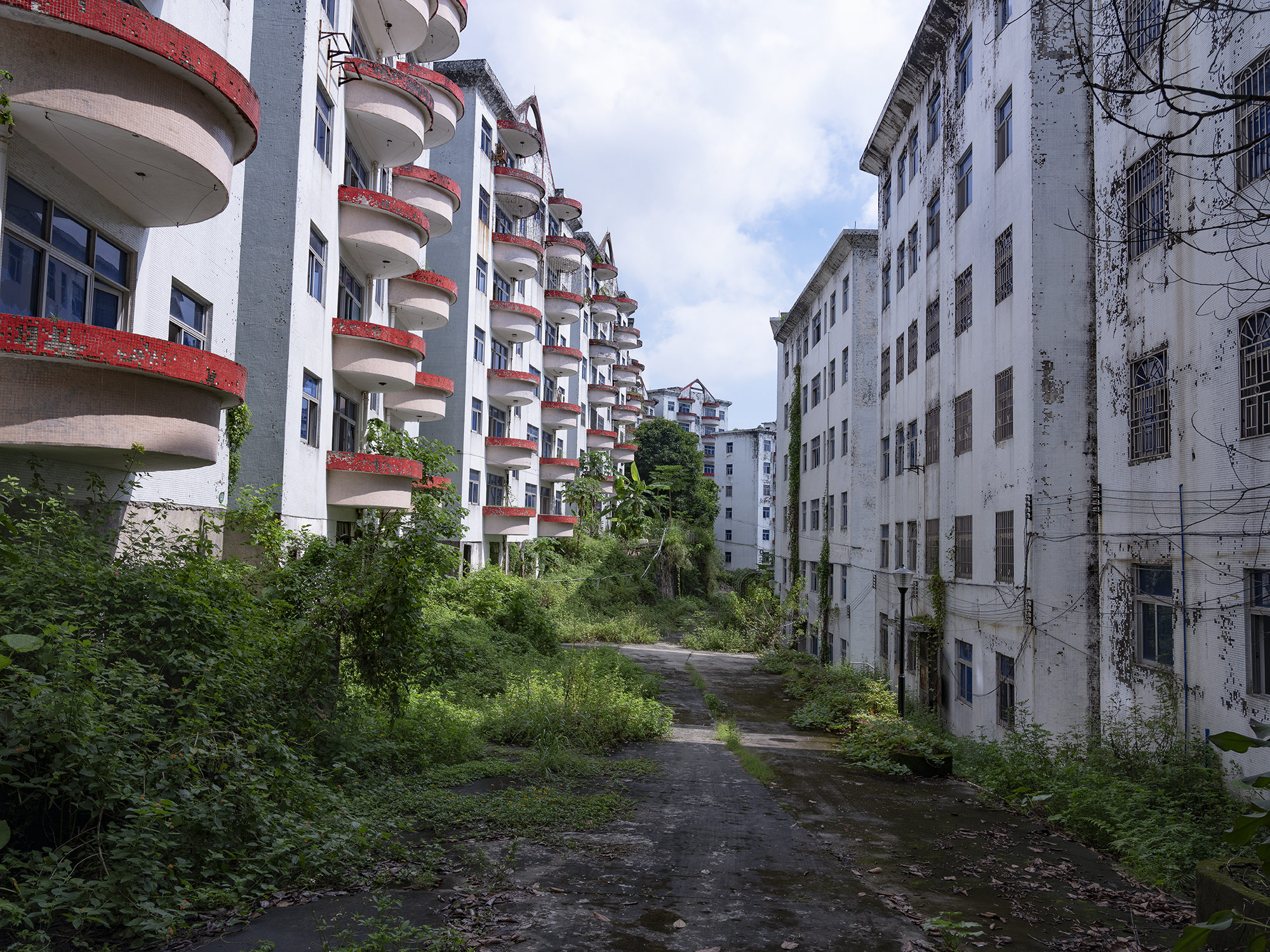
Hope springs eternal
Resolute as Liu and Lao may be, the thirty or so homeowners actually living the nightmare are mostly retired and have settled into the monotonous daily rhythm of life in their modern slum.
Way, way back in 1998 and 1999, there were two organized efforts among buyers to take legal action against Aomei, both to no avail. When smartphones boomed ten years ago, they bonded again through social media groups, not just to fight the good fight, but also to organize annual potlucks and group excursions. But time is running out for many of the elderly homeowners. Every year, fewer and fewer attend the sporadic get-togethers and the lights in social media accounts go out forever.
The last few stalwarts filed a new suit in early October. No one knows how the proceedings will go, but few harbor much optimism.
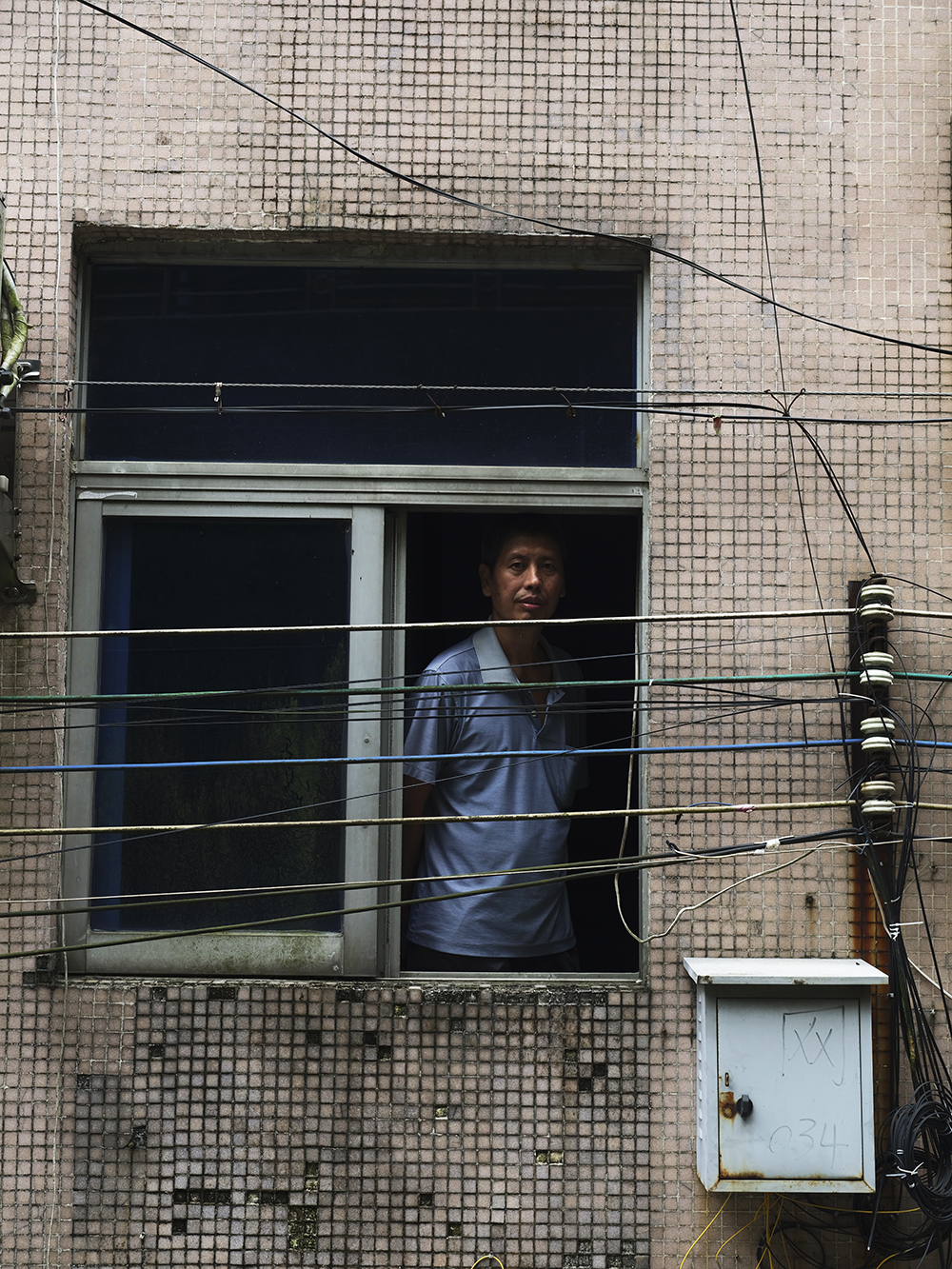
Lao injects a sense of purpose into his life by driving elderly neighbors to local stores and running errands. Lao has all but abandoned his last vestiges of hope, but somehow still clings to his faith in the legal system, and a spark of revolutionist spirit still flickers. “While there is breath in my body, I will keep appealing, petitioning, and suing. I will never give up. It’s as good a hobby like any other,” he says with a wry despondency.
As for He and Luo, they have found some peace in gardening. They have all the space they could ever have dreamed of and grow papaya trees nearby. They often give fruit to their neighbors.
It’s a very far cry from the life that the couple imagined for themselves, but there is a kind of tranquility about Aozhou Village, peace that perhaps money cannot buy. Every day, He makes his pilgrimage to the spring, while Luo and a cup of hot tea await his return.
